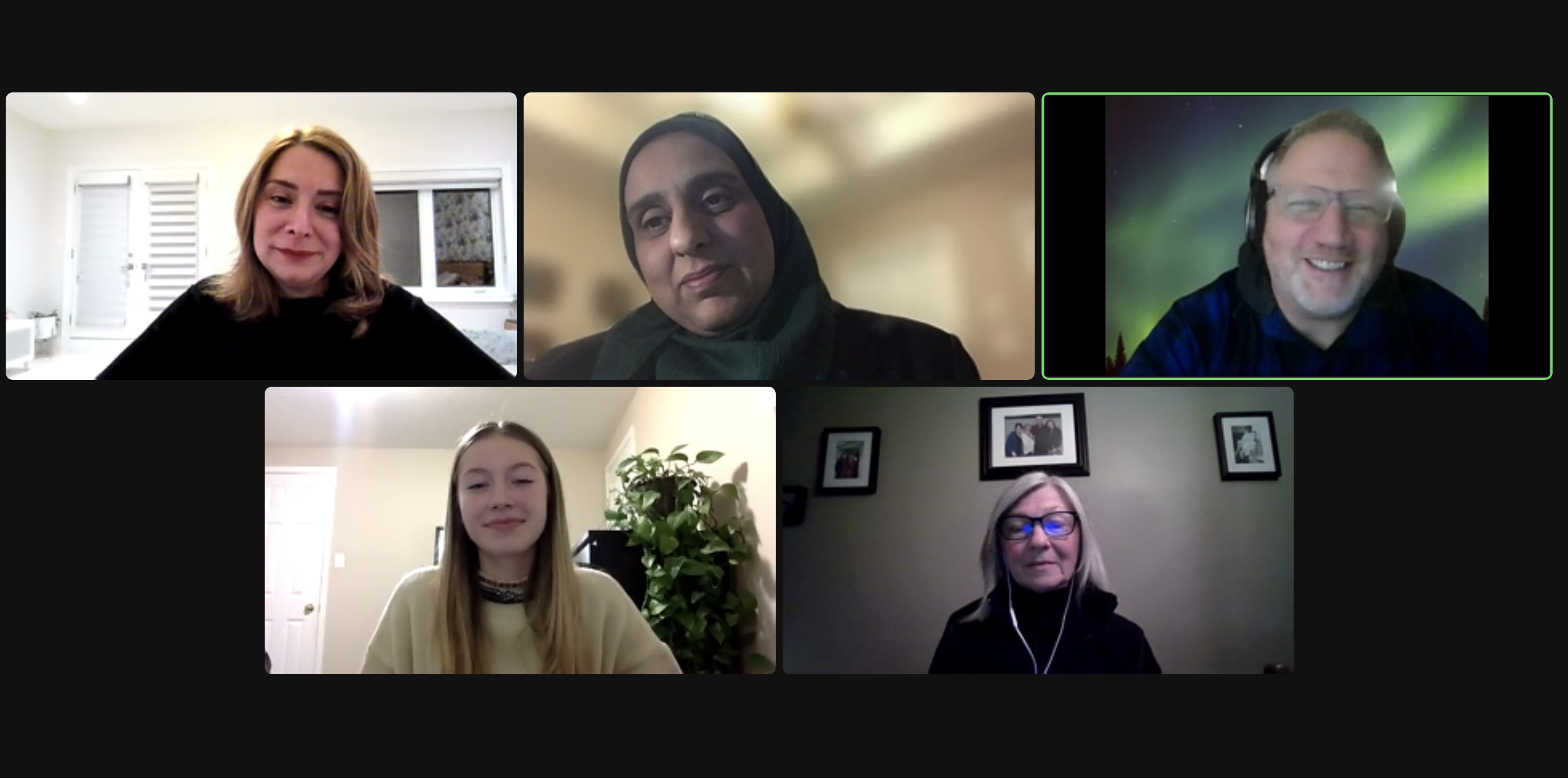WELLINGTON COUNTY – Youth engagement, creating space and building connections through community were the common themes of a webinar Thursday evening.
On Feb. 3, community leaders joined together for “Nurturing Resilience Through Community Involvement,” a virtual seminar focused on how community involvement and belonging contribute to resilience in children and youth.
The discussion, facilitated by Sara Sayyed, senior advisor of equity, anti-racism, and Indigenous initiatives at the City of Guelph, saw over 50 people in attendance.
Caroline Folkman, project manager for the Adverse Childhood Experiences Coalition of Guelph and Wellington (ACEs Coalition), introduced the webinar with a definition of resilience.
“Adversity changes people,” Folkman said.
“Resilience is a process and our ability to be successful and manage those tough times relies on what is within us and our interactions with the people, resources and environments that surround us.”
She also discussed shifting the notion of resilience to a community responsibility rather than an individual response.
“Resilience is connected to the systems around us,” she explained.
“So our relationships with other people, the resources we have and the environments around us.
“Our internal resources are not often enough to overcome adversity unless we have those external resources we need to succeed.”
The webinar was part of the broader Building Resilience During COVID Project developed by the ACEs Coalition.
The project is supported by an $83,500 Resilient Communities Fund grant over 12 months, awarded by the Ontario Trillium Foundation (OTF), to Family and Children’s Services of Guelph and Wellington County.
The purpose of the grant is to support the work of the ACEs Coalition by training volunteers and raising awareness of the effects of adverse childhood experiences.
During the 90-minute webinar, local community leaders shared stories of how their involvement in the community has had a positive impact on their lives as well as ideas on how parents can support their family’s connections with the community.
The panelists included:
- Kaya Bartlewski, a youth advocate and Grade 12 student at St. James Catholic School in Guelph;
- Brendan Johnson, executive director of the Guelph Neighbourhood Support Coalition;
- Shadi Ramez, social worker and therapist for the Attune Trauma and Regulation Centre in Guelph; and
- Emily Vincent, program coordinator for the People Information Network (PIN).
Panelists began by offering their definitions of community, each of which focused around the idea feeling connected, welcomed and accepted by the people or things around them.
The discussion was then followed by a series of questions about their personal experiences with community involvement, how we can promote community, and their advice on breaking down barriers to get more people involved.
“I think especially in these times, working with others and seeing a variety of personalities … [community] really helps you to step outside your own world and really opens your eyes and lets you see beyond yourself,” Bartlewski said.
“And I think that’s just the beautiful part of being involved in the community.”
Ramez noted, “We are evolved to connect, we are wired to connect, this is how our brains function.
“We experience adversities in connection with others and we heal in connection with others.
“In so many ways, being able to see the light in the darkness and to be the light has saved me.”
Breaking down barriers
On breaking down barriers and promoting more community involvement in youth, Ramez said for her, it’s about starting with the language we use and being mindful of our words.
“Language is very, very important,” she stated. “Words have weight and we often don’t pay enough attention to it.”
Vincent echoed Ramez, noting it’s important that language become much simpler as opposed to framing it from an organizational perspective.
“I think that always creates a sense of hierarchy,” she explained.
“And I think to really create a great sense of community and being able to invite people in and supporting them in the places where they are and where they live, there needs to be a simple plain language that resonates with everyone.”
She added promoting community involvement also means becoming more accessible and individualizing the approach for people.
Bartlewski said as a youth leader, she wants to see more youth engagement, noting she is often the only youth represented at many of the community events she attends.
“I think oftentimes I’ve kind of had to fight my way through to get into certain activities because oftentimes I think maybe youth aren’t taken as seriously or they’re not really given as many responsibilities,” she explained.
“Also, just to inspire young generations and build that resilience even earlier, I think it would be so helpful.”
Johnson said for him, it’s about authenticity and helping people navigate the systems.
“It’s the language, it’s the barriers, it’s the assumptions and biases that people don’t feel welcomed or they don’t know what to do or they’re scared to enter a space,” he said.
He added spaces aren’t being created in a way that meets the needs of a lot of people in the community.
“I’m always surprised how low a bar it is at times to bring in people into community and why we fight that sometimes,” Johnson said.
Bartlewski noted a large sense of community has been partially lost through the pandemic, but getting involved has helped people to gain some of it back and further appreciate their connections.
“I really think that community never went away,” she said.
“I think it’s always there and it’s so hopeful and so enlightening to have that support system behind you.”
To learn more about the ACEs Coalition and to access the online resources, visit www.acescoalition.ca.




